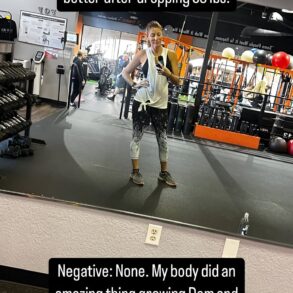
As a society, we know that life – whether it be the opportunities we’re afforded, the environments we find ourselves in, or just our day-to-day – is experienced differently depending on the communities we belong to.
And we also know that it’s not an even playing field – especially for minority communities.
Now, new research released by This Is Black Gen Z and creative agency TapIn has shown the extent to which Black Gen Z Britons are altering integral parts of their identities to try and fit into the workplace – and it’s a worrying read.
Advertisement
The findings speak for themselves
The research, which is the largest of its kind into the experiences of Black Gen Z Britain, reveals that 86% of 2,300+ respondents have changed their names on job applications or their accents in interviews to increase their chances of being recruited, known as code-switching.
“They either shortened their African names to sound more anglicised or omitted parts of their African names in the hope of getting further along the process,” the report says.
These results shouldn’t come as a surprise, though. Studies have shown that Black graduates are less likely to get graduate-level work than their white peers (or earn as much), and that recruitment processes for the likes of Whitehall, the police, and organisations across the US favour white applicants, with the latter research showing that hiring managers frequently reject applicants who have names “associated with Black people”.
Additionally, the report reveals that almost half of Black Gen Z (47%) feel that they are unable to be authentically themselves in the workplace, which increases to 63% if they identify as LGBTQIA+ and 91% if they’re trans. Considering we spend so much time at work – and often see our colleagues more than we see our family and friends – making it a safer environment for everyone – especially for the Black community – to be themselves is paramount.
Advertisement
Withholding our true selves
Self-expression is another theme that runs through the report. Black female respondents in particular told of not wearing their hair in certain styles out of fears of coming across as unprofessional. They were also more likely than men to admit to actively changing things about themselves – including their hair, their demeanour and censoring what they say.
“As a Black woman who also holds space for other Black women in therapy, I see how we often have to slot ourselves in to the workplace,” psychotherapist and author Tasha Bailey says.
“By changing our names or avoiding wearing our hair in naturally or cultural-celebratory hairstyles, we hope to divert unwanted attention from colleagues outside of our culture.”
Tasha lists microaggressions, back-handed compliments and the common criticism of unprofessionalism as examples of this unwanted attention – it’s a story we’ve seen time and time again, whether at school or work.
“It can feel like it’s safer to be physically invisible by making our hair or name as Eurocentric as possible than it is to ben seen in our true authenticity,” she continues. “As a result, it means that a lot of us have to wear our “false self” to work in order to survive our jobs.
Advertisement
“But we need safe spaces to land at work, where we can be authentically seen, heard and called the right name. Without that, we lose our connection to ourselves and can carry shame, guilt or anxiety about the realness of who we really are.”
Tiani Holgate is the Head of DEI at TapIN, and believes there’s a lot more work for organisations to do.
“The data from the report may be a shock to many, but for those of us in the Black community, much of it wasn’t a surprise at all,” she says. “Equality within the workplace should be the bare minimum, and with so many young Black people still struggling to have fair opportunity and fit in within the workplace, it’s clear that businesses are still not quite hitting the mark on building supportive workplaces where we can all thrive.”
This post was originally published on this site be sure to check out more of their content.









